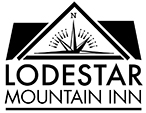The Christmas season is upon us, and most of us have already spent a great deal of time thinking about the gifts we will be giving to our loved ones. Here is a novel idea for this Christmas: give the gift of forgiveness. It’s cost effective, lasts a lifetime, and you get as much—or more—out of it as the person you give it to.
Unforgiveness is a dead weight that we can choose to carry with us as long as we want to. The catch is that the longer we hang on to it, the more harmful it is to us. Would it surprise you if I told you that many lives have been cut short because of unforgiveness? Here’s a story that will blow your mind:
There is a highly sought after doctor in San Diego, California, that has treated over 15,000 terminally ill cancer patients. Almost all of those patients had been sent home to die by their previous doctors, having been told that they had just months to live. They came to this doctor with a desperate hope that he might be able to help them. The records show that after being treated by him, 54% of his patients have lived more than five years, and many have lived 10 to 15 or more years. Some have died, but none of cancer.
When questioned how he managed to achieve these miraculous results, the doctor replied that his first step was to have a conversation with the patients. Many were depressed, some were angry with the world and God, and many were in great pain. Some were in wheelchairs, too weak to walk. So how do you think he started those conversations? His first question was, “Have you forgiven?” The patients invariably would give him a strange look and ask, “What does forgiveness have to do with my cancer?” He explained that he treats the complete individual, and man consists of body, soul, and spirit. If the soul or spirit is sick, the body is bound to be sick as well. He continues by asking them, “Have you forgiven the friend that cheated on you? Have you forgiven your spouse? Your children? Your parents (who may not even be alive)? Did you have trouble with your siblings because of inheritance quarrels? Have you forgiven them? Have you forgiven yourself for some stupidity in your past? Think back, have you forgiven?” He continued, “You are only hurting yourself, even destroying yourself, if you have not forgiven. You are not hurting the other person. If you have not forgiven, you are locked up in a cage. This cage is filled with hate, resentments, and feelings of revenge. There is only one door out of this cage. There is a big sign on this door that says FORGIVE. Open this door. Step out. Then you can breathe fresh air again, and a tremendous burden will fall off of your shoulders.“
If any of us question the power of forgiveness, there should be no question after reading this story! Remember the doctor’s results: 54% of his patients lived more than five years, many lived 10, 15, or more years. Some have died, but none of cancer.
I urge all of you to search your hearts and see if there are still some people you have chosen not to forgive fully, and then do so quickly. There is a well-used quote that goes, “The poison you have mixed for your unforgiven enemy, you yourself will drink.“ As the sentence clearly states, the poison is not imaginary. It is real. In the Lodestar Guidance bulletin on forgiveness, it states that forgiveness lowers our blood pressure, heart rate, reduces levels of depression, anxiety, and anger. People who forgive generally score higher on nearly every measure of psychological well-being. They live longer, have less stress and fatigue, and they experience more enjoyment in life.
Now that we know the whole story on the clear and overwhelming benefits of forgiveness, here are a few things we can do to make it happen:
1. Be humble and realize that every one of us is not that much different than the person who hurt us. In other words, someone else is probably struggling to forgive us of a wrong that we have committed or unkind words we’ve spoken.
2. We need to have realistic expectations in believing that whoever offended us or hurt us is going to come begging for forgiveness or will somehow be brought to justice for what they’ve done. You see, punishment is not in our job description. The Bible says, “Vengeance is mine, I will repay says the Lord Almighty.” (Romans 12:19) This is where the law of sowing and reaping comes in. We reap what we sow. If we sow unforgiveness, we ourselves will not be forgiven. Many people have died because of others who decided to take things into their own hands to inflict pain out of vengeance. In the end, that pain we inflicted will come back to haunt us. If you are waiting to forgive until you get an apology from the other person, the hard truth is that it may never happen. Forgiveness is a one-way street. You do your part by forgiving, and that’s when the healing will begin.
Blessings,

Paul Weaver
Lodestar Guidance Founder






Recent Comments